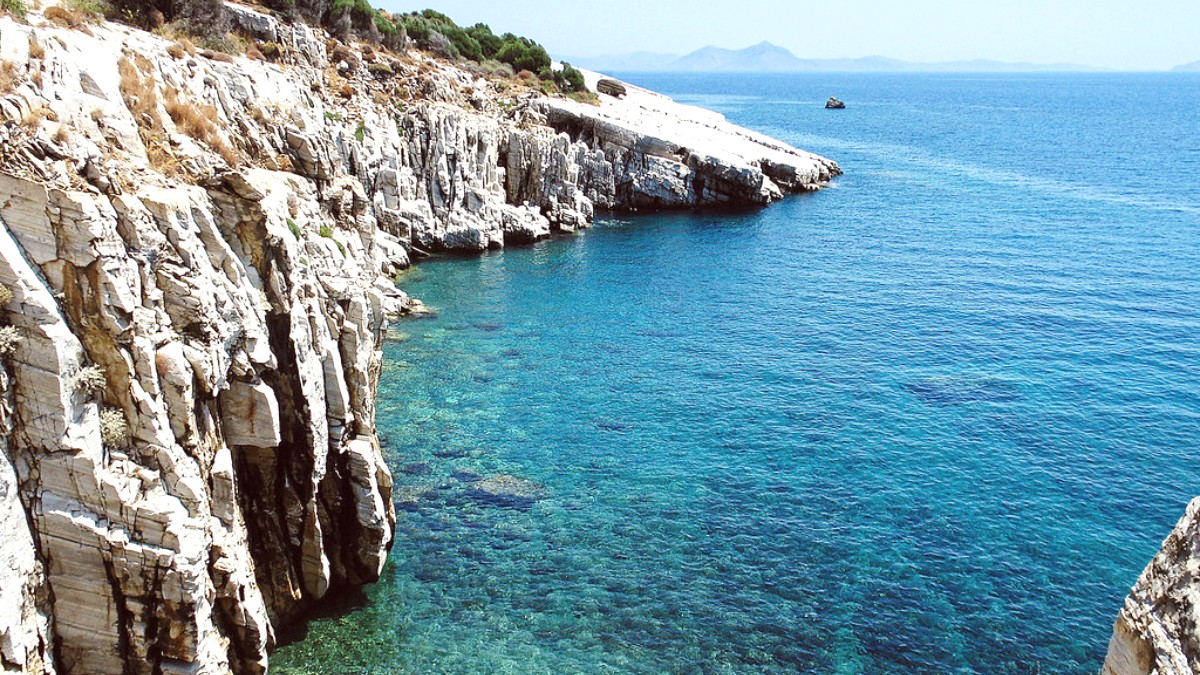
Greece
This guide offers tools to explore its wild beauty, deep history, and unique culture. Prepare to find an island where well-being is a natural outcome of daily life.
Ikaria sits in the eastern Aegean Sea, part of the North Aegean island group. It lies southwest of Samos and northwest of Patmos. The island stretches approximately 25 kilometers long and 8 kilometers wide, covering about 255 square kilometers.
Its landscape is rugged, marked by the Aetheras mountain range that runs its length, reaching heights of over 1,000 meters. This mountainous spine creates a dramatic divide between the island's northern and southern coasts.
Ikaria's name comes from the myth of Icarus, who fell into the sea nearby. Archaeological evidence shows human presence on Ikaria since the Neolithic period. The island held importance in ancient times for its strategic location and natural resources, specifically its hot springs, which people used for therapeutic purposes even then.
During the Hellenistic and Roman periods, Ikaria flourished. Byzantine rule followed, leaving behind castles and monasteries. Venetian and Ottoman empires also controlled Ikaria at different times, each leaving a mark. However, Ikarians maintained a strong sense of independence, often practicing a self-sufficient and isolated way of life in their mountainous villages to avoid foreign control and pirate raids. This history of self-reliance contributed to the island's unique social fabric.
Early human presence recorded.
Strategic location, hot springs, Oinoe as capital.
Castles and monasteries remain from this era.
Periods of foreign control, but Ikarian independence persisted.
Island of political exiles, reinforcing community ethos. Joined Greece in 1912.
This long history of resilience, self-sufficiency, and community living underpins the "Ikarian way" of life that visitors encounter today.
The island's history of self-reliance contributed to its unique social fabric and resilient spirit. Many Greeks with left-wing views were banished here, reinforcing the island's reputation for independence and a strong community ethos.
Ikarians maintained a strong sense of independence throughout various occupations. They often practiced a self-sufficient and isolated way of life in their mountainous villages to avoid foreign control and pirate raids. This history defines their unique culture.
The island officially joined Greece in 1912 after the Balkan Wars.
Ikaria offers a complete travel experience, combining natural beauty, cultural depth, and an unique lifestyle. It stands out from other Greek islands due to its emphasis on slow living, strong community ties, and authentic experiences rather than mass tourism.
Visitors find serene beaches, rugged hiking trails, and thermal springs with healing properties. The island's traditional villages, specifically Christos Raches, offer a glimpse into an older, more relaxed way of life.
Explore serene beaches, rugged hiking trails, and therapeutic thermal springs.
Experience traditional villages like Christos Raches and their unique, relaxed way of life.
Savor fresh, local ingredients, wild greens, and simple preparation methods.
The island's cultural calendar lights up in summer with Panigiria, traditional village festivals featuring live music, dancing, and abundant food and wine.